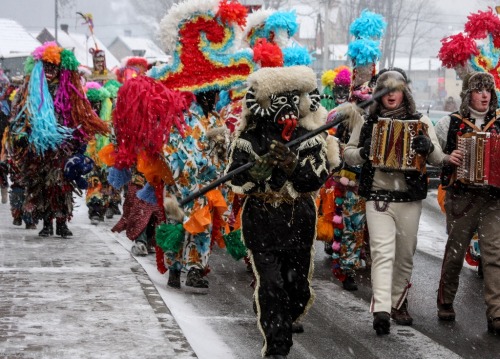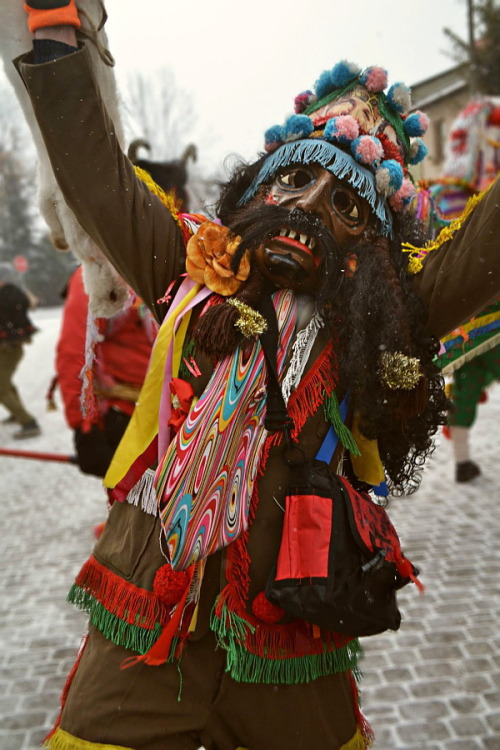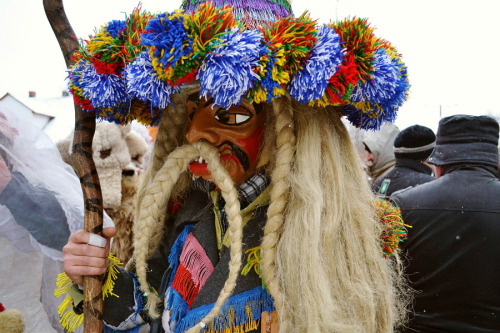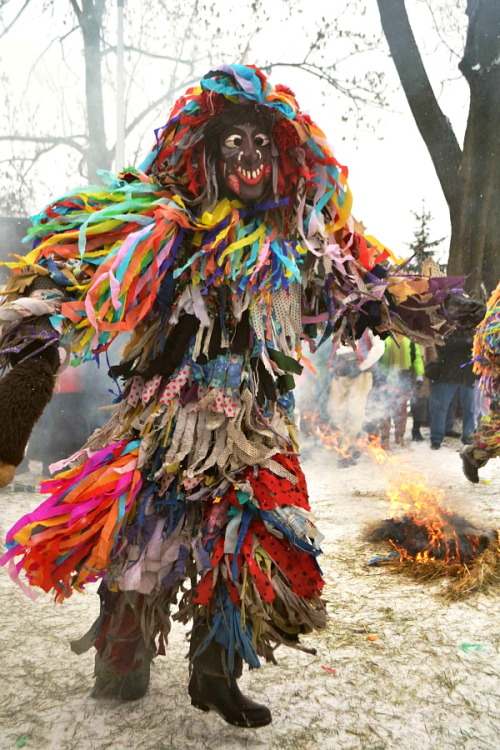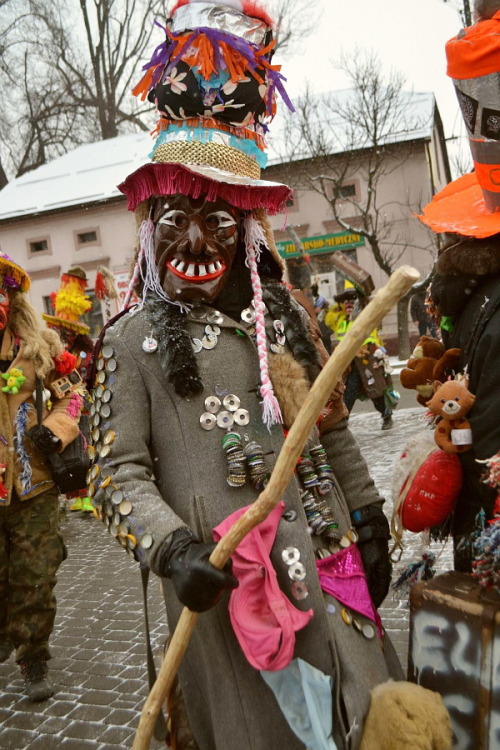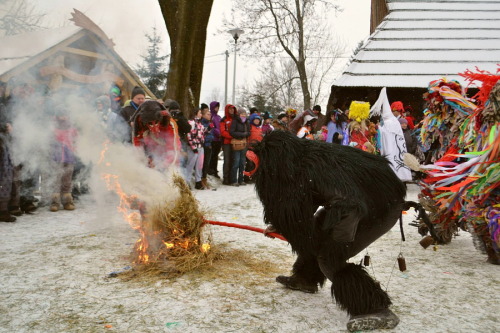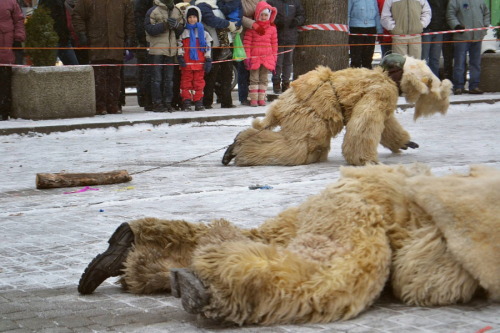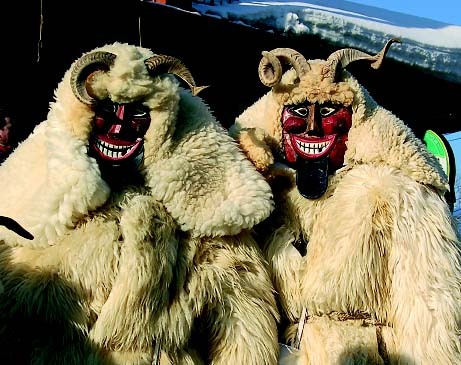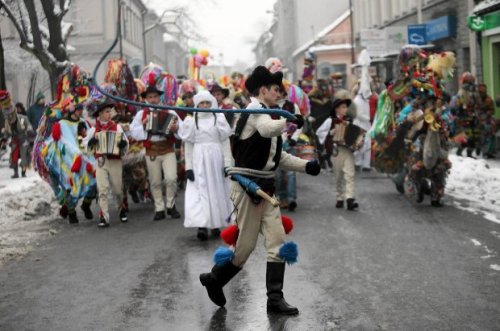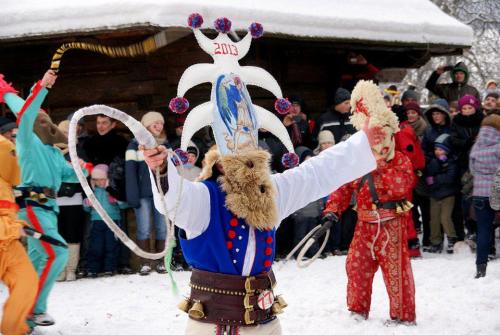lamus-dworski:Gody Żywieckie / Dziady Żywieckie / Jukace / Jukoce is a traditional New Year’s rite,
lamus-dworski:Gody Żywieckie / Dziady Żywieckie / Jukace / Jukoce is a traditional New Year’s rite, celebrated in the areas around the Żywiec town (Żywieccyzna region), Poland.Lasting for two days (from the evening of the New Year’s Eve to the afternoon of first day of the year), it combines the traditional customs of carol singing (kolędowanie) with the celebrations of the New Year’s arrival. Although this custom is slowly disappearing, it’s being maintained for instance in a form of an annual event called Gody Żywieckie, organized around the turn of January and February, which can extend up to even two weeks in time.This custom has many forms varying between the local villages - each one has its own distinctive figures and costumes. The further away from the Żywiec town, the more nature-oriented the custom becomes, taking a form of a life-reviving spectacle with characters like the dancing horses or sleeping bears. The participants from Żywiec (Jukoce - group pictured on the last photo above) still wear the archaic type of masks decorated with sheep fleece with the cut-out holes for the eyes and mouth. The traditional headwear has a tube or cone shape (it depends on the village), decorated with tassels, pompons and colorful ribbons.The most characteristic is a personage called Macidula / Sznurkorz (the name varies among villages), wearing a wooden mask and clothes covered in colorful strips of material, who by tradition is said to be rising from the dead / waking up from the winter hibernation. Other popular characters are the death (symbolizing a beginning of something new), bride and groom (the in-between state), chimney sweeper (having to deal with fire and smoke - stands between the earthly and extraterrestrial worlds) or the devil (darkness, hell). In the folk traditions the horses mentioned above symbolize vitality, spontaneity and the general forces of nature, the bears symbolize fertility and protection from everything that’s evil.Participants often receive small gifts: a piece of a festive cake, a sip of vodka, sometimes a small amount of money which, by tradition, was saved to organize a “Dziady“ feast (an ancient Slavic feast to commemorate the dead, literally translated as "Grandfathers”). Every year various competitions are organized, whipping a bullwhip (where the time and evenness are rated) being the most popular.[ VIDEO EXAMPLE ]. Picture sources: [1,2,3,4,5] -- source link
Tumblr Blog : lamus-dworski.tumblr.com
#polish tradition#winter#christmas
